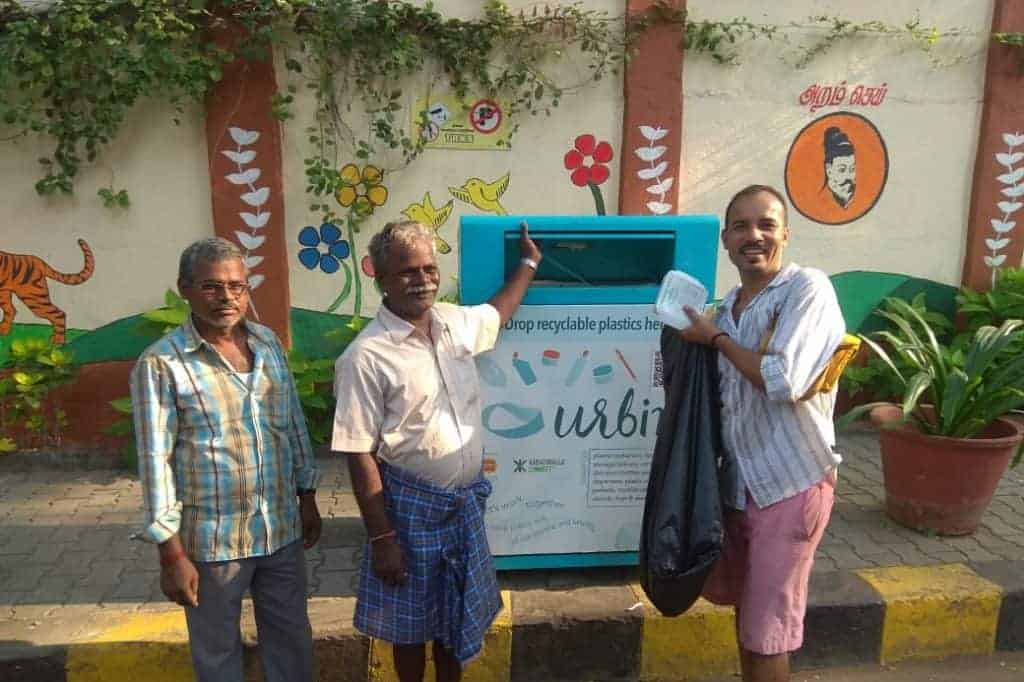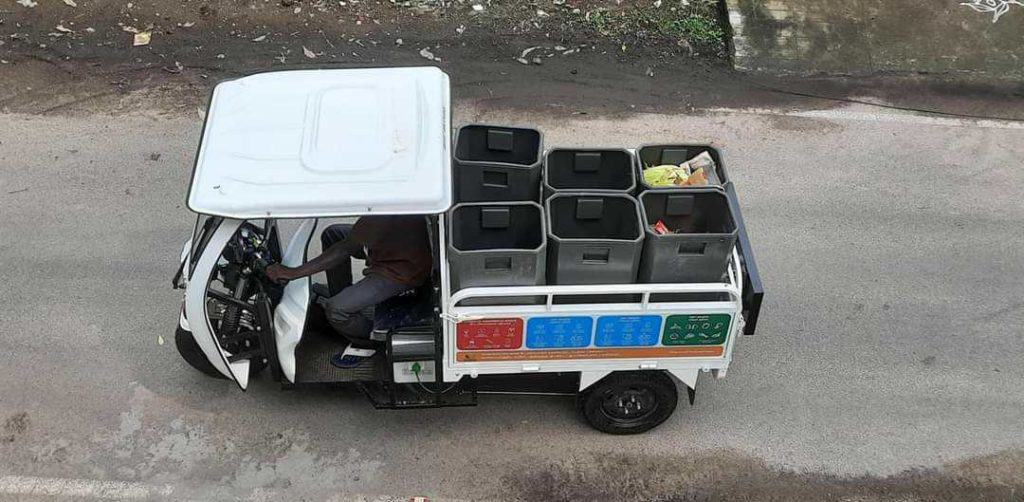A new waste management concessionaire has taken over our zone starting October 1 2020. We have been engaged in efforts to improve the waste management in our area through segregation and composting under the banner of RK Nagarra (RK Nagar Residents’ Association), which is replicating the the methods followed by TAKSRA (Thiruveedhi Amman Koil Street Residents Association)
The effort covered individual houses and apartment blocks, with residents segregating their waste at source. The system functioned smoothly and was recognised as a pioneering effort by the Tamil Nadu Pollution Control Board which conferred a Green Award for TAKSRA.

The new system
The new waste management system that has moved away from the tipping fee model to a more decentralised system is good change for the city. The collection of waste under this model by Urbaser Sumeet began this month for Zone 13 initially. The concessionaire covers 7 zones that include 92 wards in the city. The contract runs for a period of 8 years.
The entire team is very professional and is keen to resolve the initial teething problems along with RWAs. A Whatsapp group has even been created with the residents ward wise, with key RWA members for better feedback and coordination.
How it works
The Battery Operated Vehicles (BOVs) do their rounds in three shifts to collect waste in the area. The shift timings are from 6 am to 2 pm, 2 pm to 8 pm and then again at 10 pm.
In the first shift all residential garbage collection takes place. They make at least 4 rounds before the end of the shift which gives people multiple chances to ensure that the waste is collected.
The second shift covers all commercial areas and the night shift covers the emptying of roadside bins and sweeping the hotspots.
Multiple BOVs are allocated based on the size of the area they cover. The waste must be segregated at source by the residents, depending on the category it falls under. There are three categories – wet waste, dry waste and domestic hazardous waste (non-compostable and non-recyclable).

There are boxes in the BOVs for various kinds of wastes the residents may discard. The BOVs also collect E-Waste, which is a new and welcome development.
The BOV operators do not step into buildings for collection. The waste must be brought to the BOV for disposal after it has been segregated. The operators have been trained in the process of proper segregation to ensure that the waste collected is not mixed with other streams.
In addition to the collection by BOV street-wise, a separate team has been assigned for street cleaning. have also been assigned for sweeping the streets each morning. They collect the dry leaves and load it in the bin. Sometimes the BOV helps them to transport the leaves.
Garden waste is collected by fixing a designated day in a week in a separate vehicle. The service does not cover building debris that will be handled by GCC.
Post-collection
Since the Urbaser model requires transfer to bins from the BOV, RWAs requested them to relocate the existing bins away from the residential areas to ensure the success of the entire model.
While the waste is collected in colour-coded bins at the BOV, when it is offloaded into the roadside bins there is some mixing of different categories of waste. During the post collection process, Urbaser’s role ends at handing over the segregated garbage to GCC’s MCC.
As part of the city’s Solid Waste Management policy, we would be happy to see the end-to-end process by Urbaser/GCC. While the initial goal might be to ensure collection through BOVs, it is important for all stakeholders to enforce handing over segregated garbage.
Questions and challenges
While the system is in its nascent stages, it is important to understand what the challenges are and to find solutions for the same.
While the aim is to decentralise and segregate waste, if the service provider places bins in a residential area, there is a high chance of people having the tendency to directly dump unsegregated waste in the bin. Even passers-by may use the bins and thereby affect the segregation process. A solution for this could be to move the bins away from residential spots.
Urbaser’s Information Education and Communication (IEC) team should step in and start the awareness campaign at the earliest to streamline the process.
One big question among the residents about the new system is the role of the bulk waste generators. More clarity is needed on this front. As part of the scope of work by the service provider, bulk waste cannot be collected by them. Any building that has 50 flats or above is supposed to compost the wet waste and hand over only the dry waste to the service provider. However, enforcement of this will need more ground work.
With any new system, the coming together of stakeholders is necessary for its success. The start has been promising. I see a greater role for various residents associations and welfare groups in this attempt at managing the city’s waste effectively.
Also read:
Another Gandhi Jayanti. Yet another journey towards a cleaner Chennai
Urbaser’s team work is wonderful, happy with it, and a big thank to Mr.K L Balasubramanian (Bala) for his efforts in making Clean and Green R.K.Nagar.
Very good initiative and I offer all possible voluntary service to the new waste management agency. I am an active member of central Abhiramapuram residents welfare association(CARWA).Looking forward for the transformation of our streets!
It’s very good move , should continue with same way , should not stop for any reason I know it’s tough , also when they are carrying the waste should not go half in the roads , also keep the vehicle clean and tidy.
Have they started this new way of garbage collection in all areas of Chennai?
Some senior citizens are unable to unable to walk too far to dump waste in collection vehicle. What do they do.
Till now no street cleaning work started in our street old 95 New 195 Big street triplicane chennai.
In Mandavelipakkam, they have removed the existing bin and no new one is provided. BC of that all and sundry dump their garbage on the road. Till now no information / announcement by Corporation authorities
Do not understand what the award is all about, identify a road / paint it / clean it / take a phot and give an award. This is not going to help